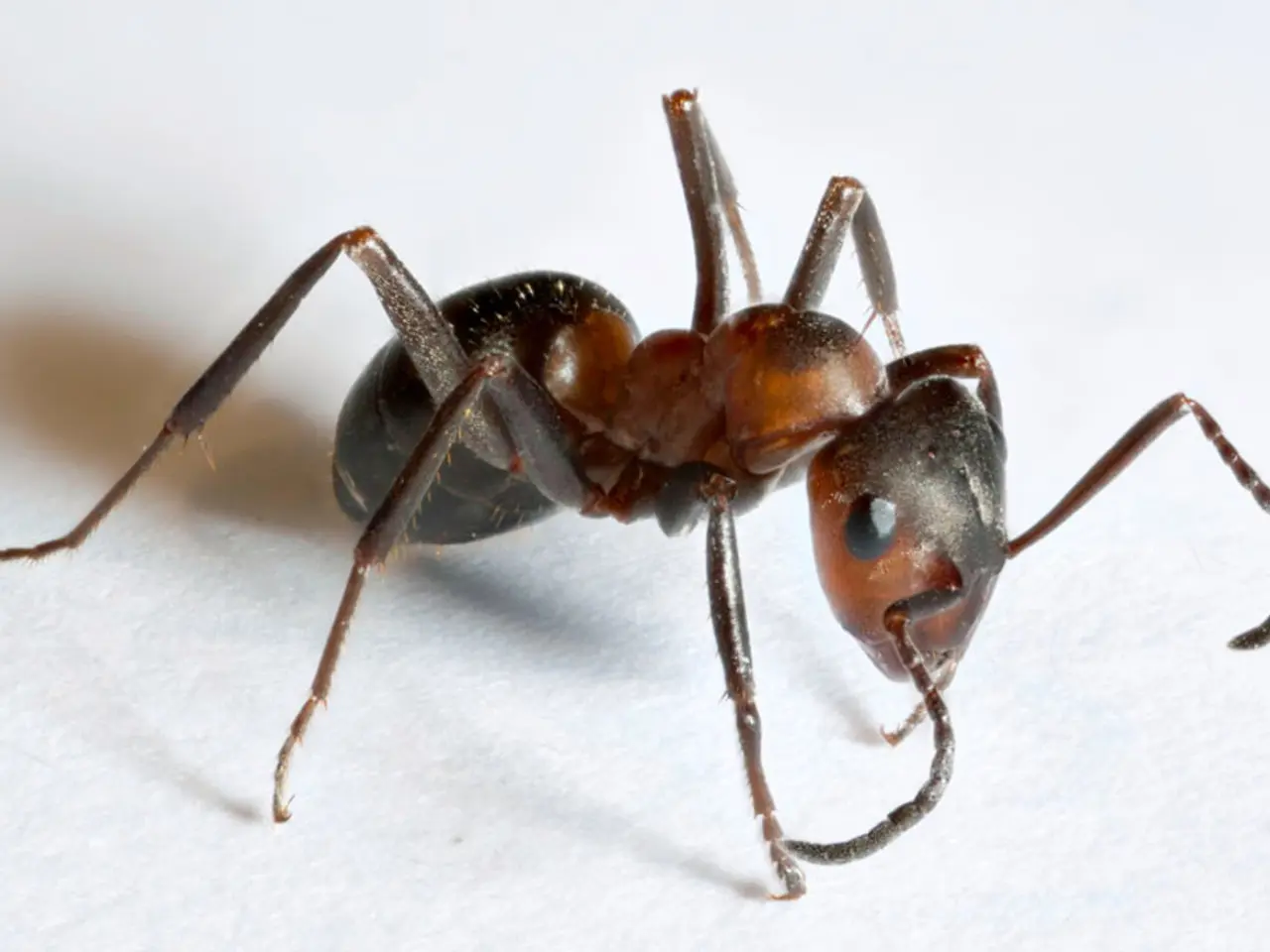Strategies for Eliminating Ants on Property: Recommendations from an Agriculturist
In the quest to maintain a pest-free garden, homeowners can turn to a combination of chemical and biopesticide methods for effective and safe ant control.
Chemical solutions, such as diluted eco-friendly soaps or mild detergents, can be used to suffocate ants. Vinegar mixed with water, when sprayed directly on ants or into ant hills, can also be lethal. Commercial chemical baits may be necessary for heavy infestations, but their application should be done carefully to minimise environmental impact.
Biopesticides and natural methods, on the other hand, rely on substances that repel or kill ants without harsh chemicals. Essential oils like cinnamon oil can suffocate ants and repel them from trails and nests. Planting ant-repellent herbs like mint or basil around the garden perimeter can also deter ants. Diatomaceous earth, a nontoxic powder, damages ants’ exoskeletons. Natural deterrents like lemon juice or turmeric have been scientifically shown to repel certain ant species effectively. Hot water poured carefully into ant mounds can destroy colonies without chemical residues.
Experts recommend an integrated pest management (IPM) approach. This involves identifying ant entry points and nests accurately, combining physical removal techniques with targeted natural repellents and chemical baits if necessary. Garden hygiene and the use of barriers to prevent re-infestation are also crucial. Monitoring ant activity to apply treatments only when needed helps avoid unnecessary chemical use. Employing environmentally friendly products that preserve beneficial insects and soil health is essential.
When handling products based on chlorpyrifos, safety measures such as gloves, protective clothing, a mask, and goggles are necessary. Products containing diazinon are classified as class 3 hazards, which are moderately dangerous to humans and pets. Biopesticides, however, are not absorbed by plant roots and decompose quickly in the soil without harming the environment.
One-time treatments may not be enough for effective ant control. Preventive treatments should be conducted not only on one's own garden plot but also on the territory of neighbours. Controlling ants in a garden is a systematic process that requires persistence.
In conclusion, a balanced approach that integrates both chemical and biopesticide methods ensures safe and sustainable ant control in gardens, while minimising risks to plants, pets, and soil ecosystems.
The integrated pest management (IPM) approach suggests combining physical removal techniques, natural repellents, and chemical baits when necessary, to maintain a pest-free garden lifestyle. This also involves using home-and-garden friendly products like essential oils, diatomaceous earth, or citrus juices as natural ant repellents or killers in the society's gardening practices.




